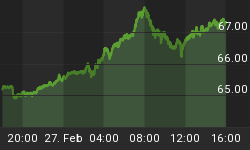Last week, the Greek parliament voted by a narrow margin to pass an economically crippling austerity plan of some $40 billion in return for some $159 billon of fresh liquidity injections. Although many hailed the event as a needed first step on a long road to recovery, I believe the austerity program will make a bad situation worse. It is a flawed solution that stems from a false premise: that Greece should continue to be part of the euro zone, and continue to use the euro as its currency.
To return to national economic viability Greece must abandon its use of the euro currency, which has become a financial straight jacket. Nevertheless, Greek politicians may have agreed secretly to accept the austerity in name only, in return for a liquidity bailout that will buy time for European unity to solidify. Once political unity is restored, we should expect more massive financial transfers from northern countries, present day Germany and Britain, to the subsidized southern regions.
As its price to maintain the status quo, central bank lenders, including the IMF and ECB, are demanding that Greece sell off some $72 billion of its national assets. The likely buyers will be international companies based in the EU, U.S. and possibly even China. Such a fire sale can't restore the Greek economy, but it gives the appearance that the Greeks are paying something for their loans, and it provides cover to northern European politicians who are feeling increasing frustration from voters who have been continually asked to foot the bill for southern European profligacy.
In contrast, Greece could have decided instead to abandon the euro and devalue a new Greek currency unilaterally to pay its debts. This is the typical remedy for marginal economies that have gotten into debt quicksand. Most certainly, devaluation would reduce Greece's standard of living by slashing the purchasing power of Greek citizens. But in recompense it would boost exports and improve Greece's balance of payments. The Greeks could then begin the hard work of restoring their economy while maintaining ownership of their national assets.
However, if Greece was to abandon the euro, the shaken confidence could lead to a euro collapse, bringing to an end the idealistic dreams of a unified Europe. Politicians are desperate to avoid this no matter what it costs their increasingly subjugated peoples.
In addition, a Greek debt default would trigger massive losses on the books of EU banks, many of which had been 'persuaded' by their governments to invest in Greek debt. Also, major U.S. banks have profited hugely by selling Credit Default Swaps (CDSs) to insure these loans. Indeed, they have insured some $32.7bn of Greek debt alone. Furthermore, U.S. banks have invested directly in European sovereign debt. In other words, the financial pressure to keep Greece from defaulting is enormous.
The euro is the world's second largest reserve currency. Its dissolution would cause huge shockwaves in a currency system that already is causing some investors to hedge in precious metals. A collapse of the euro could likely send gold, silver and most food commodities skywards in price. As a result, politicians and the bankers share a common interest in saving Greece from debt default and so salvaging the euro, regardless of the effect on the Greek people.
Greece's vote to accept austerity has yet to be enacted in specific cuts and taxes, but when they do, expect public resistance that will dwarf what we have seen thus far. At that point we can expect this debate to be revisited. I believe that when the pressure becomes too intense, Greece may in fact return to the Drachma.
I have consistently argues in these columns that a sovereign debt crisis would develop into a possible currency collapse. The beginnings of this endgame can be seen today on the streets of Athens.
Subscribe to Euro Pacific's Weekly Digest: Receive all commentaries by Peter Schiff, Michael Pento, and John Browne delivered to your inbox every Monday.
Click here for free access to Euro Pacific's new special report: What's Ahead for Canadian Energy Trusts?
Be sure to pick up a copy of Peter Schiff's hit economic fable, How an Economy Grows and Why It Crashes.















